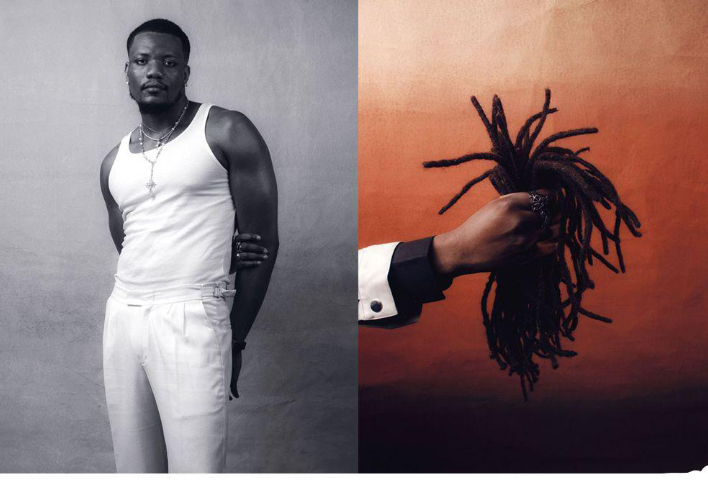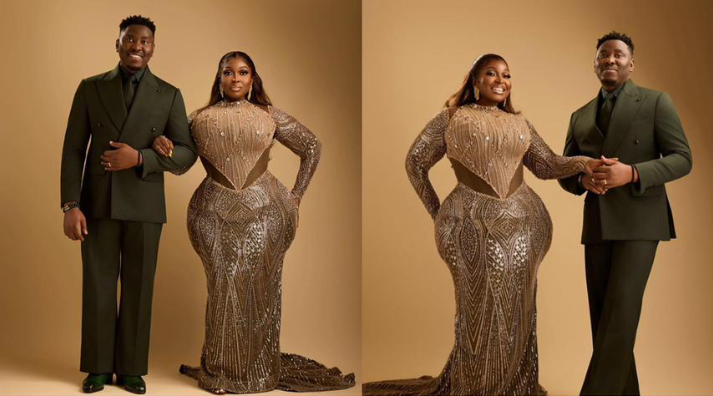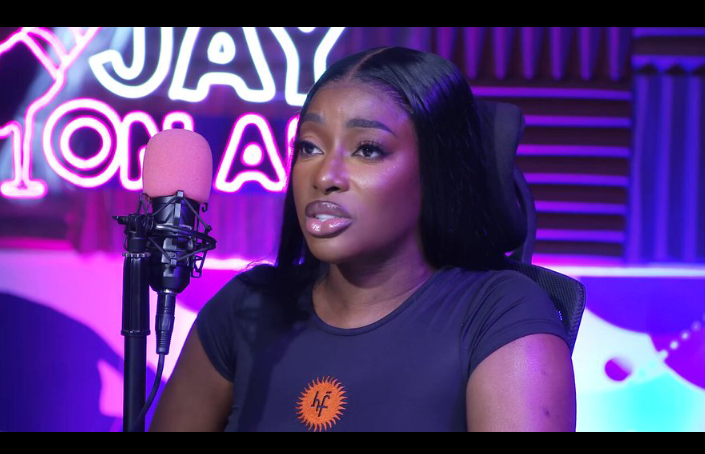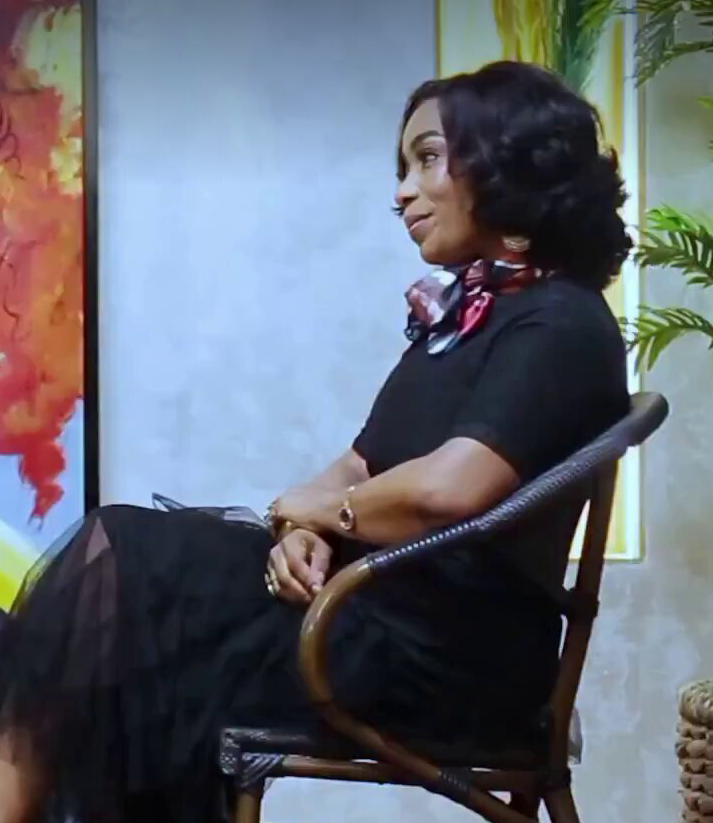
African Moms and Haircuts: Singer Pheelz Melts Hearts as He Shares His Mother’s Overwhelming Joy After Cutting Off His Dreads

Popular Nigerian singer and producer Pheelz has stirred emotions online after revealing how happy his mother became when he finally decided to cut off his dreadlocks. The talented hitmaker, known for his signature locks and unique style, took to social media to share the heartwarming moment that has since gotten fans talking. In a simple but emotional post, Pheelz wrote, “The joy in my mum’s heart cos the dreads are gone is crazy. Ah African parents mehn.” That short tweet carried so much emotion that it immediately resonated with thousands across social media who could relate to the deep cultural and generational divide between many African parents and their children when it comes to self-expression through hairstyles.
For years, dreadlocks have been a major talking point in African households. While they’re widely recognized around the world as a form of personal style, identity, or even spirituality, many African parents—especially from older generations—still view them with skepticism. For some, dreads are seen as unkempt, rebellious, or even associated with negative stereotypes. So, when Pheelz finally decided to part ways with his iconic dreads, it wasn’t just a haircut; it was an emotional moment that seemed to bridge the gap between modern self-expression and traditional African values.
The singer’s post immediately sparked waves of reactions from fans, with many sharing similar stories about how their own parents reacted when they changed their appearance to something more “acceptable” by cultural standards. Some users playfully teased that African mothers see dreadlocks as “a covenant with the streets,” while others praised Pheelz for doing something that clearly meant so much to his mother. In a world where artists are often pressured to maintain certain images for branding and fan recognition, Pheelz’s decision to cut off his dreads came as a surprising yet refreshing move.
Known for his chart-topping hits like “Finesse” and “Electricity”, Pheelz has consistently maintained an image that balances his artistry with authenticity. His dreadlocks had almost become a trademark, representing his creative spirit and laid-back confidence. However, this new look seems to mark the beginning of a new chapter in his personal and professional life—one that his mother is clearly delighted about. Fans have been quick to notice the symbolism behind the moment, interpreting it as both a gesture of respect and an act of personal growth.
The relationship between African parents and their children often involves a delicate balance of love, tradition, and modernity. In many cases, parents hold deeply rooted beliefs about how their children should appear and behave, associating certain styles or trends with negative societal perceptions. For mothers in particular, seeing their sons with dreadlocks can trigger mixed emotions—ranging from concern for how others might judge them to worry about their child’s safety in a world where appearance often dictates treatment. For Pheelz’s mom, the removal of those locks clearly represented relief and joy, possibly seeing it as a sign that her son had “come back home” to a cleaner, more traditional look.
What made Pheelz’s tweet stand out wasn’t just the humor or relatability—it was the raw honesty behind it. In that single sentence, he captured an entire cultural conversation about African parents, generational gaps, and the constant negotiation between personal identity and family expectations. The laughter and love embedded in his tone showed that while he might have had fun with his dreads, he also deeply values his mother’s happiness.
Celebrities and fans alike flooded the comment section, reacting with laughter, support, and shared experiences. One fan wrote, “My mom nearly threw a party when my brother cut his dreads; African mothers will never change.” Another commented, “I can imagine her smile from here; these parents don’t play when it comes to hair.” Some fans even speculated that Pheelz might be entering a new creative phase, hinting that the haircut could symbolize a transformation in his music or personal journey.
Interestingly, this moment also highlights a recurring theme among African celebrities—how their personal choices often reflect broader cultural narratives. From Burna Boy’s bold style to Rema’s evolving looks, the fusion of African identity and global artistry is always in conversation with tradition. Pheelz’s post might seem lighthearted, but it taps into a much deeper question about how young Africans navigate the expectations of their families while expressing their individuality.
Despite the generational differences, it’s clear that love remains the unshakable bond between parents and their children. Pheelz’s story reminds many of the simple joys that come from making a parent smile, even through something as ordinary as a haircut. The way he phrased it—“The joy in my mum’s heart”—suggests that her happiness was not just visible, but deeply felt. It paints a touching image of a proud mother, perhaps even emotional, as she sees her son in a new light—one that aligns with the values she’s always cherished.
For fans, the story also offered a glimpse into a softer, more personal side of Pheelz. Beyond the fame, beats, and performances, it was a moment that showed his humanity and deep connection to family. It also sparked conversations about the pressures celebrities face in maintaining images that sometimes clash with their family’s expectations. Many agreed that no matter how far one goes in life, the approval of a mother remains priceless.
As photos and clips of Pheelz’s new look begin to circulate, fans are already expressing admiration for his clean-cut appearance. Some even argue that the change suits him perfectly, while others confess they’ll miss his signature dreadlocks that once defined his image. Yet, regardless of public opinion, one thing stands clear—the singer’s choice has brought immense joy to the woman who matters most to him.
Social media continues to buzz with reactions, and the tweet has gone viral not just for its humor but for the authenticity it represents. In an era where most online posts are filtered or calculated, Pheelz’s genuine reflection on his mom’s happiness feels refreshingly real. His post serves as a reminder that sometimes, the smallest gestures can bring the greatest joy—especially to African parents who see their children’s choices as reflections of family pride.
For many young Africans, this moment between Pheelz and his mother is more than just a celebrity anecdote—it’s a mirror of their own experiences, a reminder of the cultural tension between freedom and family approval, and a celebration of love that transcends generational boundaries.
In the end, Pheelz didn’t just cut off his dreads; he unknowingly started a conversation that millions could relate to. His story has become a symbol of understanding, laughter, and love—the kind that only African mothers can express so passionately. And as his fans celebrate his fresh look and his mom’s visible excitement, one thing is certain: no matter how big you become or how far your music travels, the joy of a happy African mom will always hit differently.


